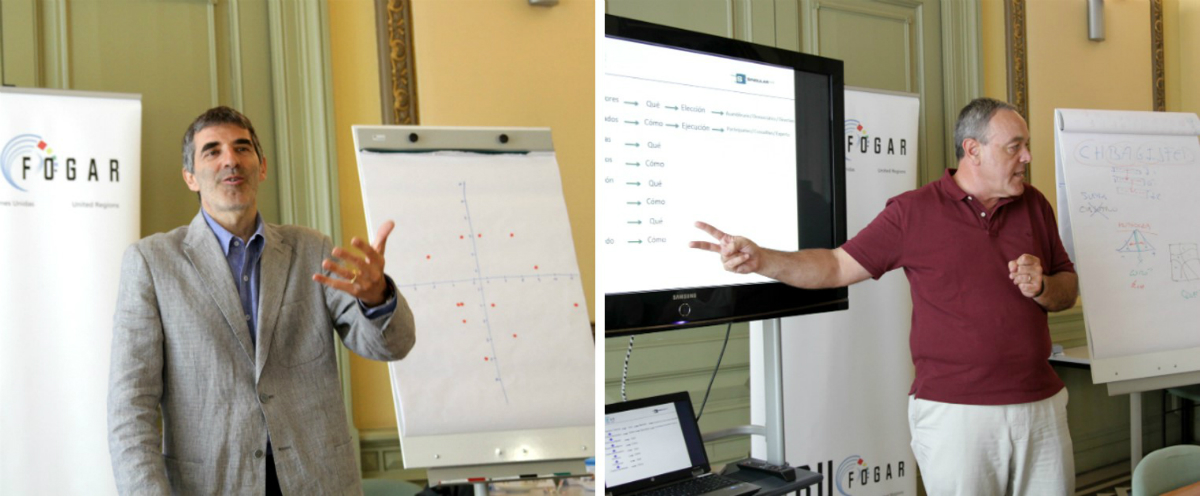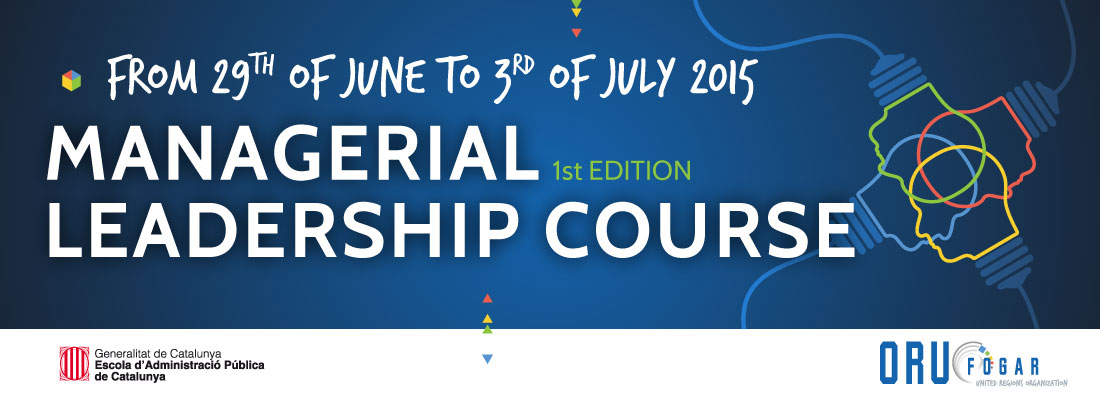The Managerial Leadership Course concludes successfully

ORU has set in motion a new project through its Training School in Barcelona, aimed at making available to its members educational resources and tools to improve their capabilities in multiple aspects of regional cooperation. The first experience of the Training School has been the 'Managerial Leadership Course', which took place between the 29th of June and the 3rd of July in the Public Administration School of Catalonia, member of ORU, and which concluded with very positive results.
Addressed at political leaders from the regional sphere, this course was a great opportunity for all who attended to learn how to achieve efficient communication as leaders and to apply the keys to success in the performance of managerial leadership. ORU had the honour of receiving a delegation from the Provincial Government of Morona Santiago, Ecuador, from the Colombian National Federation of Departments, from the Latin American School of Intermediate Government Management (ESCOLAGI) and from the Monterrey Technical Institute in Mexico, who besides actively taking part in the course visited several institutions in Barcelona accompanied by ORU’s team, with the objective of establishing cooperation partnerships between Catalonia and Latin America.
The Managerial Leadership Course was structured in two modules run by highly prestigious expert lecturers. Ferran Ramon-Cortés, personal and political communication coach, explained how to interact and communicate with each of the members of your team in accordance with their specific personalities and relational styles. Carles Mendieta, top management coach, taught the keys to team management, how to become a good team leader and how a good leader manages the team through a new vision of the managerial role. Both teachers made the workshops dynamic by inviting the participants to put into practice what they learned in a variety of group dynamics.
The Closing Session was led by Dr Luís Guastavino, ESCOLAGI’s Director-General, and Dr Patricia Easton, director of ESCOLAGI-Chile. Under the headings 'The moral authority of the political leader' and 'The leadership of change' respectively, they both shared their conclusions of the course and offered their vision of the importance of the organisations and governments having efficient and committed leaders.









































































